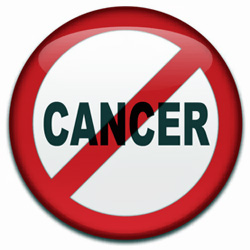
by plant4health | Jun 25, 2015 | cancer, Nutrition, Plant-based, Vegan, WFPB, Whole food, Whole food, plant-based
 Food choices are very personal, making information that challenges the healthy nature of commonly enjoyed foods very controversial.
Food choices are very personal, making information that challenges the healthy nature of commonly enjoyed foods very controversial.
With the advancements in technology, new scientific discoveries are forcing us to question our fundamental beliefs about our diet and how it affects our health. If we hope to cure our society’s current health crisis, we need to pay attention to what science is telling us.
Fact: science has discovered a connection between consuming animal products and cancer.
(more…)
![How to heal yourself and resolve the health care crisis – Dr. T. Colin Campbell]()
by plant4health | Jun 18, 2015 | cancer, Healing, Nutrition, Plant-based, Vegan, WFPB, Whole food, plant-based
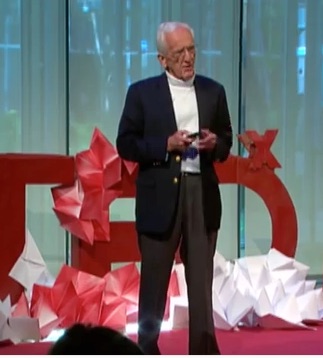 It’s no secret that the United States has a health care crisis. In this TED Talk, Dr. T. Colin Campbell, Professor Emeritus at Cornell University and co-author of several nutrition books including The China Study and Whole, shares his view on how we can each heal ourselves and tackle the health crisis in our country.
It’s no secret that the United States has a health care crisis. In this TED Talk, Dr. T. Colin Campbell, Professor Emeritus at Cornell University and co-author of several nutrition books including The China Study and Whole, shares his view on how we can each heal ourselves and tackle the health crisis in our country.
View the video on YouTube.
Here are some key take-aways from his talk:
(more…)
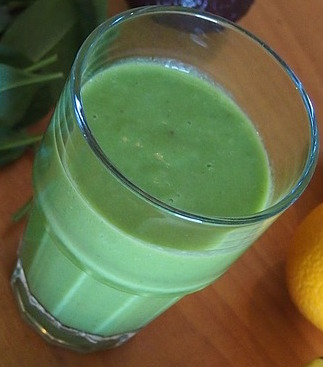
by plant4health | May 28, 2015 | cancer, Nutrition, Plant-based, Recipes, Vegan, WFPB, Whole food, Whole food, plant-based
 While battling cancer, juicing was a vital part of my husband’s nutritional support system and remains an important part of our plant-based diet.
While battling cancer, juicing was a vital part of my husband’s nutritional support system and remains an important part of our plant-based diet.
When your body has developed cancer, or any illness, it is telling you something – its needs are not being met. Your body is a compilation of complex systems that all work together in creating your experience of living. Food provides the fuel all of those interrelated systems require in order to function and maintain health. When one or more of those systems are compromised, we get sick. Reevaluating your eating habits is the first step towards providing your body with the tools it needs to fight disease and regain optimal health.
It’s all about eating consciously. Our bodies have an incredible capacity to heal and your diet is the foundational support system in that healing process. Juicing is a great way to provide your body with much needed nutrients that are easy for your system to absorb.
Juicing Facts:
Nutrient rich – When you drink fresh vegetable juice, highly concentrated vitamins, minerals and enzymes are easily accessible to your body as they rapidly enter the bloodstream. Juice made from fresh produce is high in antioxidants and minerals, wonderful tools in the fight against cancer. Because most of the fiber has been removed, the nutrients can bypass the digestive system and go straight to where you need them most. (more…)
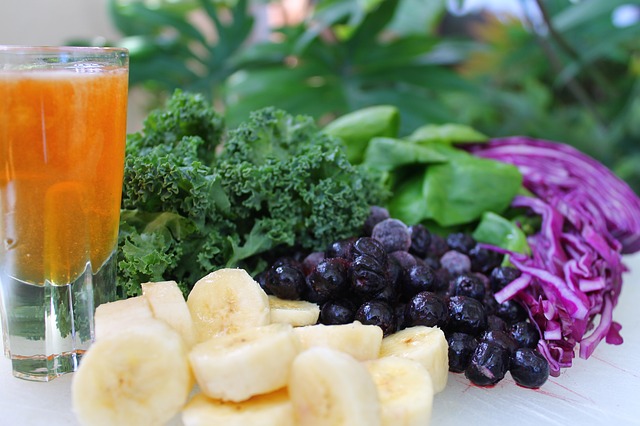
by plant4health | May 21, 2015 | cancer, grocery shopping, Nutrition, Plant-based, Recipes, Vegan, WFPB, Whole food, Whole food, plant-based
 Last week, I was talking with a friend who desperately wants to change her diet but can’t seem to take that first step. According to her doctor, if she doesn’t start making some changes soon, she will be destined for heart disease, stroke, chronic arthritis and/or diabetes as she moves towards her 60s. Over the last few years, she’s gained a few pounds, begun experiencing chronic joint pain, and is battling fatigue as she tries to maintain the high energy her busy lifestyle demands. She went to the doctor thinking her symptoms were signaling the beginning of menopause that hormone therapy might ease, only to learn that she is in the “high risk” category for the most popular illnesses that lead to death and disability in the United States.
Last week, I was talking with a friend who desperately wants to change her diet but can’t seem to take that first step. According to her doctor, if she doesn’t start making some changes soon, she will be destined for heart disease, stroke, chronic arthritis and/or diabetes as she moves towards her 60s. Over the last few years, she’s gained a few pounds, begun experiencing chronic joint pain, and is battling fatigue as she tries to maintain the high energy her busy lifestyle demands. She went to the doctor thinking her symptoms were signaling the beginning of menopause that hormone therapy might ease, only to learn that she is in the “high risk” category for the most popular illnesses that lead to death and disability in the United States.
My friend is not obese nor is she a junk food addict. Actually, before this wake up call, she thought she was living a pretty healthy lifestyle; she always eats a salad with meals, orders whole grains and organic meat when dining out, avoids all fast-foods, and always declines the pastries and sweets offered at business meetings and parties. However, the hidden fats, carbs, salt and sugar from the foods she has been eating, combined with her limited amount of exercise was starting to take its toll.
(more…)
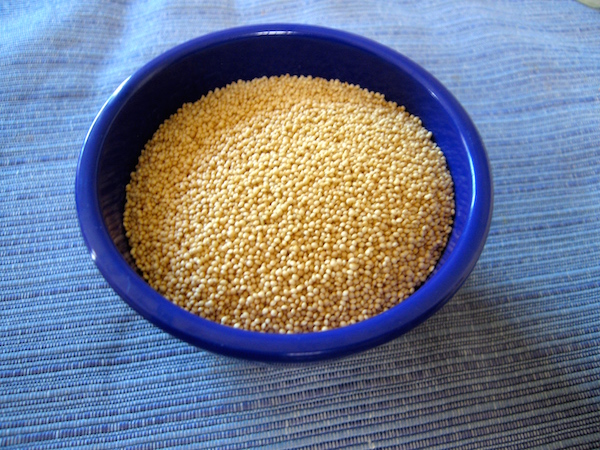
by plant4health | May 14, 2015 | cancer, Nutrition, Plant-based, Recipes, Vegan, WFPB, Whole food
 Recently, I’ve been experimenting with amaranth, both the seed and flour, in my cooking. I enjoy incorporating new textures and flavors into our meals. Amaranth provides a subtly sweet, earthy nuttiness, making it delicious in both sweet and savory dishes. Depending on how you cook it, from crispy chewy crackers to breakfast porridge, amaranth is a wonderful addition to your healing diet.
Recently, I’ve been experimenting with amaranth, both the seed and flour, in my cooking. I enjoy incorporating new textures and flavors into our meals. Amaranth provides a subtly sweet, earthy nuttiness, making it delicious in both sweet and savory dishes. Depending on how you cook it, from crispy chewy crackers to breakfast porridge, amaranth is a wonderful addition to your healing diet.
Amaranth, a major part in the Aztecs’ diet, has been around for thousands of years. It is naturally gluten-free and holds a powerhouse of nutrients. It contains more than three times the average amount of calcium found in grains and is high in protein, iron, magnesium, phosphorus, and potassium (1). Amaranth is also alkaline, making it a wonderful grain for those on an alkaline healing diet.
(more…)
by plant4health | Apr 22, 2015 | Plant-based, Sustainability, Vegan, WFPB
In honor of Earth Day, I’d like to share a short video I created on the impact of our food choices on people, animals and the planet. Adopting a whole food plant-based (WFPB) diet, promoting organic farming practices, and eliminating subsidies to farmers and fisheries can go a long way to help the health of humans, animals and our planet.
[wpvideo lXDgSfQz]
Transcript:
Our planet has over 7 billion people and the population is growing at 14% per year. We have 50% more people today than in 1980. 60% of humans are malnourished. Resources are stretched to the limit. How can we feed our growing population in a sustainable way?
99.7% of our food comes from land but our crop land is decreasing due to population growth, soil erosion and salinization. We could have 30% less irrigated crop land worldwide by 2025. Conventional farming practices use pesticides and herbicides which reduce the nutrient value of soil and create dead zones in our oceans where nothing can live. Organic farming is the best choice. It uses cover crops for natural fertilizer and builds nutrient-rich soil that stores water.
It takes far more water to raise animals for human consumption than to grow plant food for human consumption. A 1 lb. loaf of bread requires 250 gallons of water to produce, whereas 1 lb. of beef takes 5,000 gallons of water. You would save more water just by replacing a pound of beef with plant foods than you would by not showering for six months! It takes less water to produce one year’s worth of food for a completely plant-based diet than it does to produce one month’s worth of food for a diet with animal products.
As mentioned earlier, nitrogen fertilizers used on conventionally-grown crops run off into our coastal oceans, creating dead zones where nothing can live. In addition, many fish we eat are full of heavy metals like mercury. Over fishing is taking its toll. 75% of fisheries are in peril and there has been a 90% decline in prized fish like tuna and swordfish. We’ve maxed out the ocean and can only bring in 85 million metric tons of fish annually. Farmed fish is not the answer. It also creates dead zones from nitrogen fish food and the cramped conditions encourage disease.
The US government has been giving subsidies to farmers and fisheries for decades. Farmers paid by the government are forced to grow a single crop, such as corn. They get rid of their livestock and no longer have onsite fertilizer. They buy commercial fertilizer which damages our soil and oceans. Subsidies to cattle ranchers to produce cheap meat – increasing meat consumption and therefore water consumption. Subsidies to fisheries result in over fishing. According to the World Trade Organization, US subsidies violate trade practices.
With a growing population of over 7 billion people, we are running out of land to grow food, running out of fresh water in many areas, ruining our coastal oceans and over fishing with some species near extinction. The status quo is unsustainable.
Here are 2 things you can do to help change the status quo.
- Take action! Recognize that we all own our planet: land, water, oceans and air. Encourage your government officials to ban subsidies to farmers and fisheries.
- Eat an organic, 100% plant-based diet. It’s healthier for you, healthier for our land, healthier for our water and marine life and certainly better for the animals who are not killed for consumption by humans.
Sources:

 Food choices are very personal, making information that challenges the healthy nature of commonly enjoyed foods very controversial.
Food choices are very personal, making information that challenges the healthy nature of commonly enjoyed foods very controversial.



